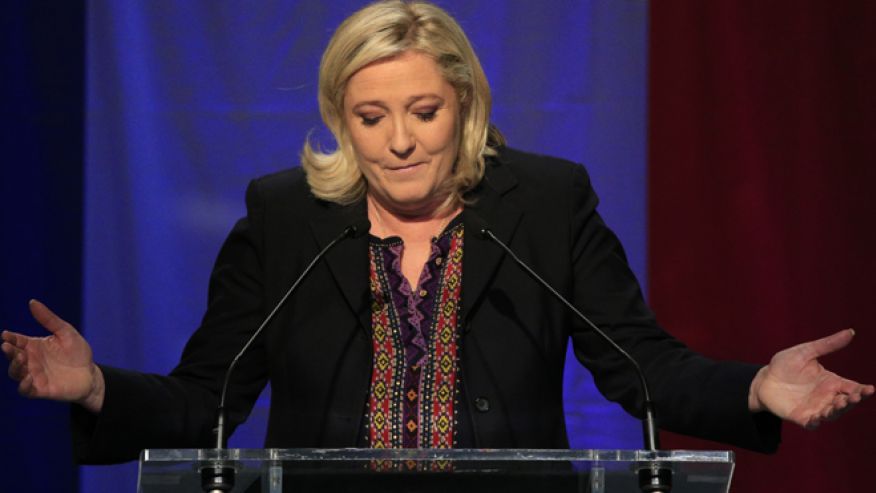Far-Right National Front Falls Short In French Elections
Marine Le Pen’s anti-immigration National Front was the frontrunner heading into the decisive second round of…
Some 23 million voters headed to the polls for the second round Sunday – 7 percent more than the first round, when the National Front led in six of France’s 13 regions.
Winning control of any region would be unprecedented and a big boost for the National Front – and especially for Le Pen’s hopes for the presidency in 2017. “It seems that anything that happens helps the National Front”, she said.
In regional elections, any list of candidates garnering more than 10 percent in the first round makes it to the second round.
She noted that the FN’s score in the second round of regional elections rose from 9.17 per cent in 2010 to 30 per cent on Sunday, “confirming as European Union and departmental elections showed the inexorable rise of the FN, election after election”.
The party has traditionally been seen as outside the political mainstream and has never won control of a French region before.
Le Pen has reaped the rewards of her efforts to “de-demonize” the party bequeathed by her father, but it retains a stridently anti-immigrant edge.
Le Pen was running in the northern region of Nord-Pas-de-Calais-Picardie, and her niece, Marion Marechal-Le Pen, was likewise running in the southern region of Provence-Alpes-Cote d’Azur – but Socialist candidates in both regions pulled out after trailing behind during the first round of voting last week, enabling their voters to back Les Républicains.
French Prime Minister Manuel Valls from the Socialist Party said that although Le Pen’s party had failed to win, “the danger posed by the far-right has not gone away, far from it”.
Mr Valls said voters “responded to the very clear, very courageous appeal of the left to block the path of the extreme right, which won no region”.
As the votes were counted, the initial results made clear that the National Front had been barred from office, and they reinforced the party’s narrative that a sizable minority of France’s citizens are being shut out from power.
Le Pen struck an upbeat tone despite the rout, pledging to keep fighting to expand support for her party.
Early estimates showed Le Pen scored around 42 percent to almost 58 percent for her right-wing rival Xavier Bertrand in the economically depressed north.
She also sought to purge the worst of the anti-Semitic elements as well as the fundamentalist Catholics who for three decades had been one of the main strands of the party leadership. Marine Le Pen pointed this out in her concession speech tonight, saying that she had achieved the “total eradication” of the left.
Political scientist Nicole Bacharan told NPR’s Linda Wertheimer that the recent terror attacks in Paris also helped influence the party’s rise.
The FN had taken 28 percent of the vote nationally in the first round, ahead of 27 percent for the Republicans and their allies.
French voters turned out in droves on Sunday to prevent a surging anti-establishment, anti-immigration party from capturing regional office, a week after the once-fringe group shocked many by leading the nationwide vote in the first round of elections. “Even if they are not in office, they weigh on the political debate, and numerous mainstream political parties try to copy them”.








